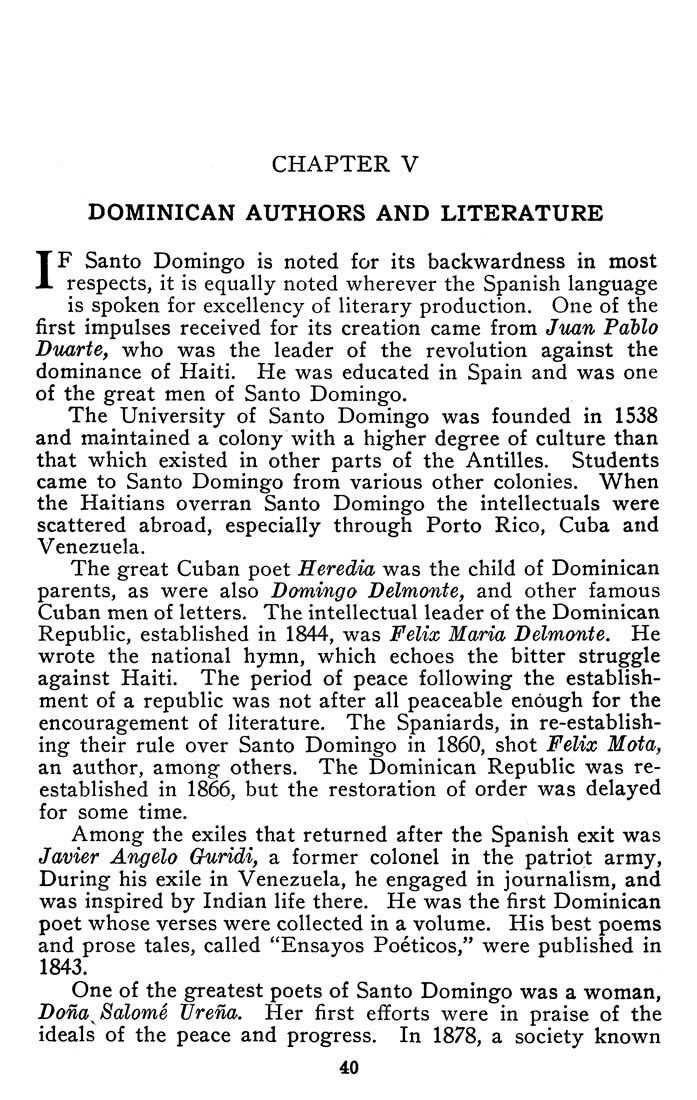CHAPTER V
DOMINICAN AUTHORS AND LITERATURE
IF Santo Domingo is noted for its backwardness in most
respects, it is equally noted wherever the Spanish language
is spoken for excellency of literary production. One of the
first impulses received for its creation came from Juan Pablo
Dvurte, who was the leader of the revolution against the
dominance of Haiti. He was educated in Spain and was one
of the great men of Santo Domingo.
The University of Santo Domingo was founded in 1538
and maintained a colony with a higher degree of culture than
that which existed in other parts of the Antilles. Students
came to Santo Domingo from various other colonies. When
the Haitians overran Santo Domingo the intellectuals were
scattered abroad, especially through Porto Rico, Cuba and
Venezuela.
The great Cuban poet Heredia was the child of Dominican
parents, as were also Domingo Delmonte, and other famous
Cuban men of letters. The intellectual leader of the Dominican
Republic, established in 1844, was Felix Maria Belmonte. He
wrote the national hymn, which echoes the bitter struggle
against Haiti. The period of peace following the establish¬
ment of a republic was not after all peaceable enough for the
encouragement of literature. The Spaniards, in re-establish¬
ing their rule over Santo Domingo in 1860, shot Felix Mota,
an author, among others. The Dominican Republic was re¬
established in 1866, but the restoration of order was delayed
for some time.
Among the exiles that returned after the Spanish exit was
Javier Angelo Guridi, a former colonel in the patriot army.
During his exile in Venezuela, he engaged in journalism, and
was inspired by Indian life there. He was the first Dominican
poet whose verses were collected in a volume. His best poems
and prose tales, called "Ensayos Poeticos," were published in
1843.
One of the greatest poets of Santo Domingo was a woman,
Dona^ Salome TJrena, Her first efiforts were in praise of the
ideals of the peace and progress. In 1878, a society known
40
|








